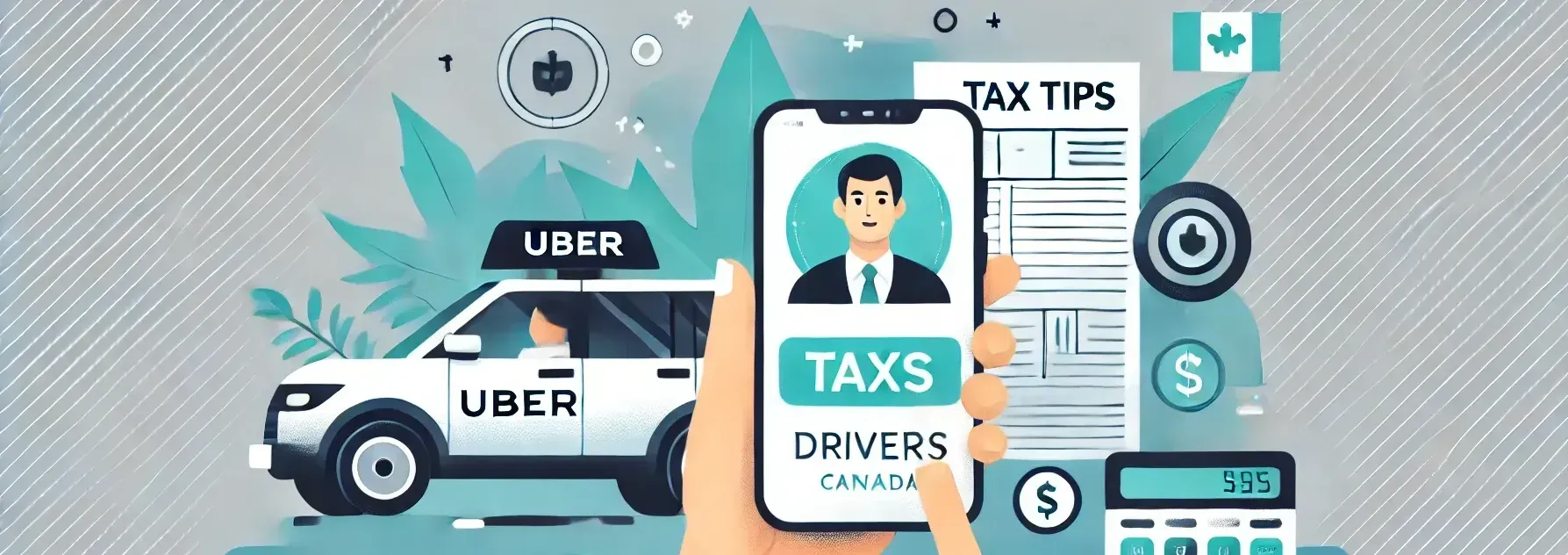Essential Tax Tips for Uber Drivers in Canada
So, you've joined the rideshare economy—congrats! Driving for Uber is one of the most flexible jobs in Canada, whether it's a full-time gig or just a side hustle. However, with this flexibility comes the responsibility of understanding how taxes work for rideshare drivers. Let's go over the key points to ensure you're on the right track when it comes to reporting your rideshare income.

Do Uber Drivers Pay Taxes?
Yes, rideshare drivers are classified as independent contractors, not employees. This means that taxes are not automatically deducted from your earnings. You are responsible for reporting all your rideshare income as self-employment income and paying the applicable taxes when you file.
How Much Should Uber Drivers Set Aside for Taxes?
It’s recommended that Uber drivers put aside 25% of their net income (after expenses) to cover taxes. Since the CRA requires self-employed individuals to report and pay taxes annually, this helps you avoid a big surprise when tax season arrives.
What if You Drive for Uber Eats?
The CRA treats being a courier for a food delivery service like Uber Eats differently from rideshare driving. GST/HST registration is not required for couriers until their income surpasses $30,000, unlike rideshare drivers, who must register from the start.
What Information Do Uber Drivers Need to File Taxes?
To file taxes as an Uber driver, you’ll need the following:
- Annual tax summary from Uber or other platforms
- Receipts and bills for tax-deductible expenses
- Vehicle mileage records, showing both business and personal use
- Your Social Insurance Number (SIN)
- Your GST/HST number (if applicable)
- Any other tax documents related to rideshare driving (e.g., tip income)
You'll use Form T2125 (Statement of Business or Professional Activities) to report your self-employment income when filing your tax return.
What Expenses Can Uber Drivers Deduct?
As a self-employed individual, you can claim many expenses to lower your taxable income. Some common deductions include:
- App fees (service, booking, and airport fees)
- Gas and vehicle maintenance (e.g., oil changes, tires)
- Lease payments and car washes
- Cell phone expenses (a portion used for work)
- Capital cost allowance (CCA) on the vehicle
Do Rideshare Drivers Have to Charge and Claim GST/HST?
Yes, as a rideshare driver, you are required to:
- Register for a GST/HST number.
- Charge, collect, and remit GST/HST on every fare, regardless of how much income you earn.
The amount of GST/HST varies by province (e.g., Ontario is 13%). Be sure to check the applicable rate in your province.
Key Takeaways:
- All rideshare income is taxable, so it’s important to set aside around 25% of your net business earnings for taxes.
- GST/HST registration is mandatory for rideshare drivers from Day One, regardless of income.
- The tax rules for rideshare drivers differ from those for food delivery drivers, so understanding the distinction is key.











